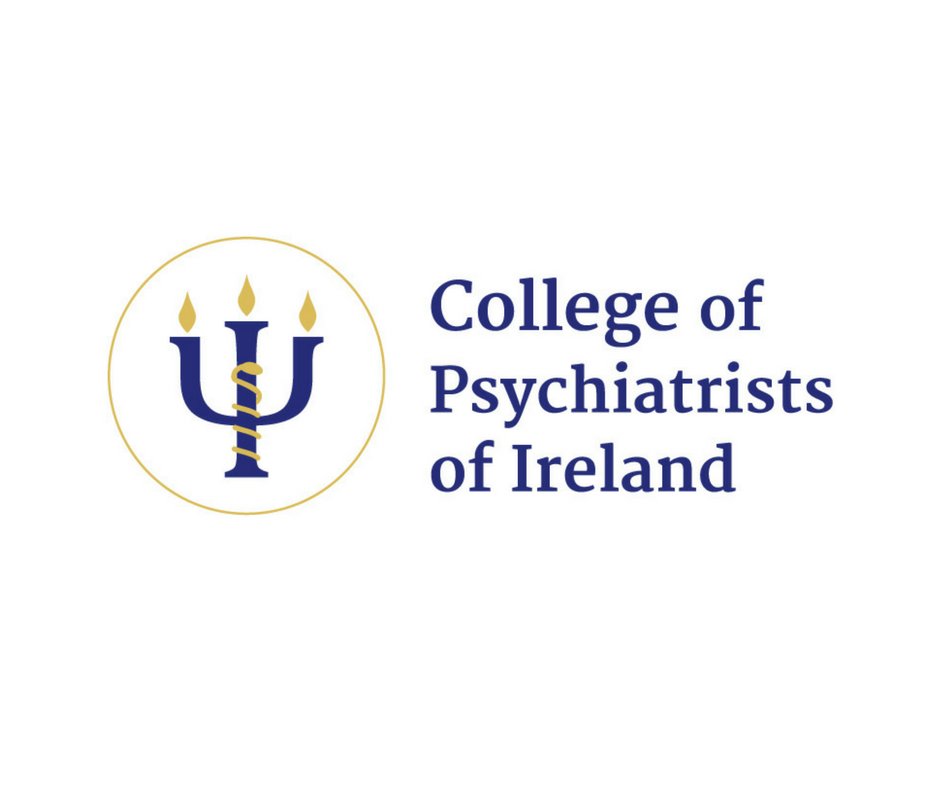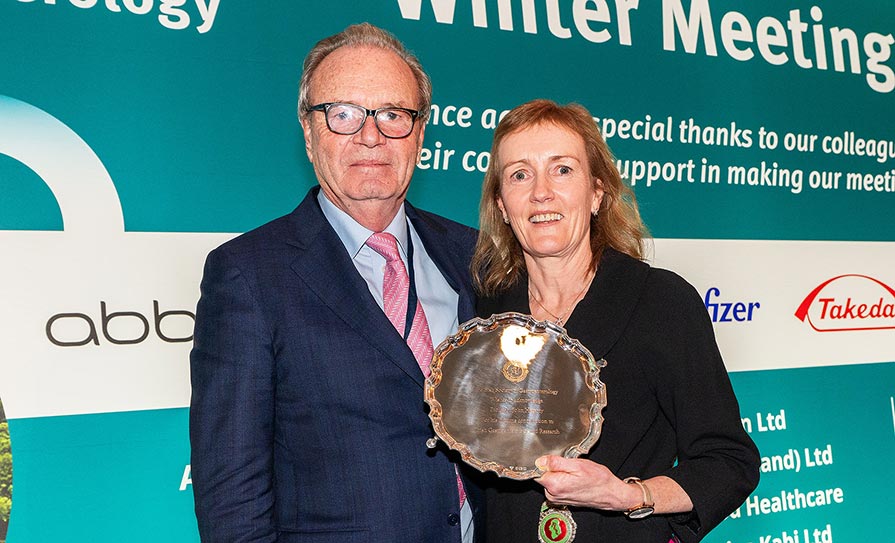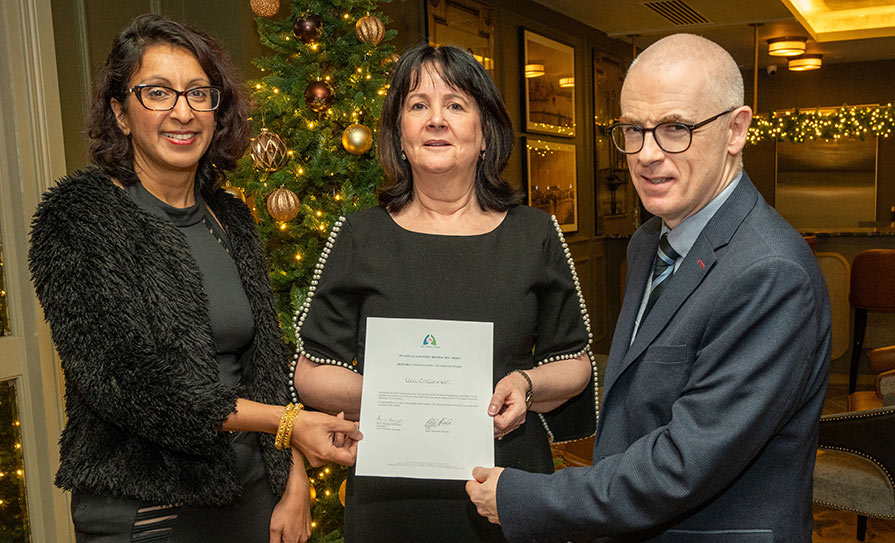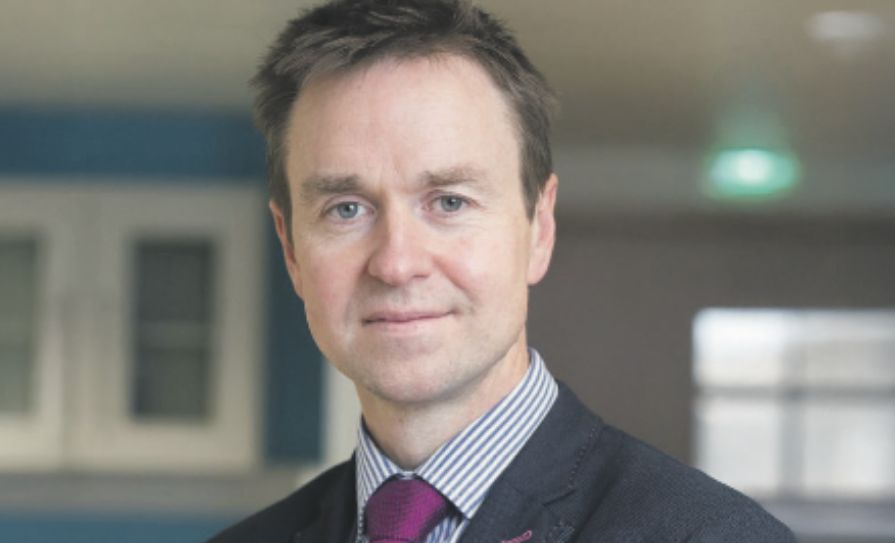The College of Psychiatrists of Ireland, Spring Conference, Virtual Meeting, 25-26 March 2021
Dr Wendy Burn, former President of the Royal College of Psychiatrists (RCPsych), and Dr Gareth Cuttle, Project Manager of the RCPsych Neuroscience Project, spoke at the conference about the RCPsych Neuroscience Project, which began in 2016 as a two-year initiative and was then extended by a further three years. The aim of the project is to train psychiatrists in the basics of neuroscience, as it is thought that in the coming years neuroscience will provide a deeper understanding of psychiatric illnesses. This project is therefore “laying the foundations” for psychiatry trainees to be able to understand and confidently deliver new treatments to patients once the neuroscience behind certain psychiatric illnesses has been established.
The initial phase of this project was stakeholder consultation: Patients, medical students, trainees, foundation doctors, and Heads of Schools and Course Organisers, were all consulted to ensure that the programme met the needs that are out there. They found that there was huge interest and support for this programme. It is important to note that the organisers of this project also made a commitment that psychiatry depends on the “integration of the physical, psychological, and social”, Dr Burn highlighted.


This was echoed later by Dr Cuttle, who said that the goal of this project is not to replace anything that already exists in psychiatry, but rather to integrate “modern neuroscience and psychiatry for better mental health”. The aim of this project is therefore not to switch psychiatry to focus entirely on the physical aspects of the brain, but rather to ensure that once the science is there, the physical aspects can become easily integrated into everyday care.
Dr Burn informed the audience about some of the recent developments in neuroscience, which she hopes will lead to a significant progress in the understanding of psychiatric disorders. Dr Madeline Lancaster from the University of Cambridge has created “mini brain” organoids from skin cells of individuals. Organoids are lab-grown groups of cells that self-organise into a pea-size object that resembles an organ, or in this case, the human brain with “all the different brain regions”. It is thought that this will lead to an increased understanding of human brain development, as so far the only models we have for this area of study are animal models, whose brains differ quite considerably from our own.
Organoids are lab-grown groups of cells that self-organise into a pea-size object that resembles an organ, or in this case, the human brain with ‘all the different brain regions’
Dr Burn thinks this research will have the biggest impact on neurological disorders such as autism and schizophrenia, through helping us understand the physical basis of these disorders, and thus help to learn how to alleviate symptoms.
These brain organoids can also show the effect of drugs on developing brains. Dr Burn told the audience that it has already been demonstrated through brain organoids that the antidepressant paroxetine leads to an 80 per cent fall in expression of synaptic marks, a 60 per cent fall in neurite outgrowth, and a 40-to-75 per cent fall in the number of oligodendrocytes in a developing human brain.
Another study discussed by Dr Burn examined the use of brain organoids originating from skin cells from 15 individuals with DiGeorge Syndrome, or 22q11 Deletion Syndrome (22q11DS), and 15 healthy controls. It was found that cortical neurons derived from people with 22q11DS were more excitable than controls and spontaneously fired four times as frequently as controls. Furthermore, they demonstrated that treating these neurons with antipsychotic drugs reversed the defects in resting membrane potential and calcium signalling, and prevented these neurons from being so excitable. Having a basic understanding of neuroscience will ensure that psychiatrists can follow the discoveries as they are being made and read the scientific papers describing the research, according to Dr Burn.
Dr Cuttle then took over the presentation to describe the “brain camps” the RCPsych Neuroscience Project deliver. These events are “more than a workshop”, are one-day long, and are very immersive, interactive, and participatory, according to Dr Cuttle. The workshops are run by researchers and educationalists who are “really keen” in training psychiatrists. The day contains presentations, overviews, and updates, all on clinically relevant topics. Play-Doh is also used to facilitate active learning – attendees work in teams of three or four to create a brain out of Play-Doh while learning about the structure and the behaviours associated with the different brain structures.
The numbers at these brain camps are restricted to ensure they remain interactive. This workshop has been delivered to over 300 trainees across the UK already, while participants have travelled from Toronto and Hong Kong to attend the workshop. Dr Cuttle pointed out that the brain camps are also “incredibly valuable” to the researchers leading the workshops to spend time with a clinical practitioner, as researchers do not tend to see patients with psychosis, even though they may have spent years researching the condition.













Leave a Reply
You must be logged in to post a comment.